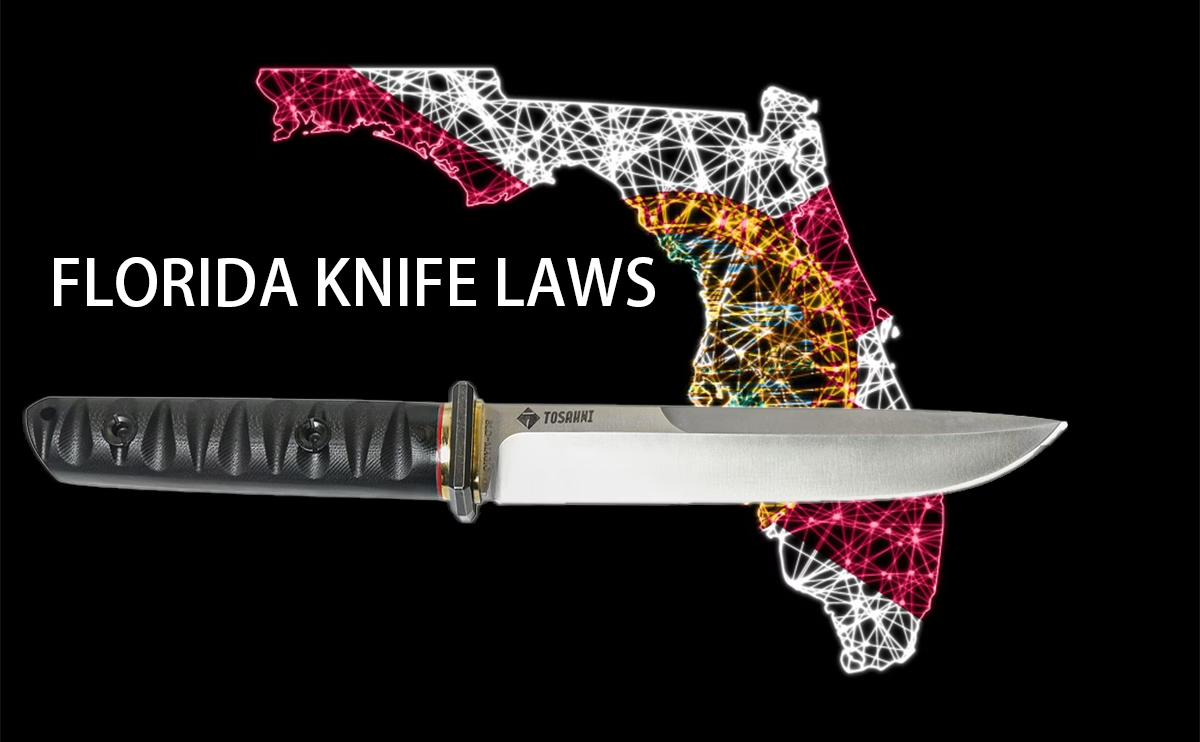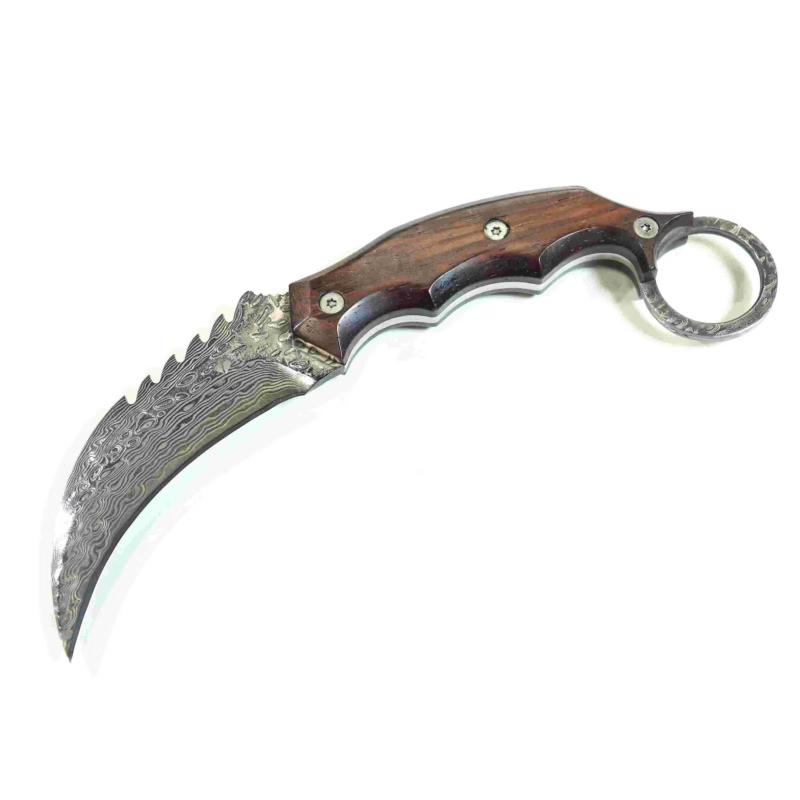Blog
2025 Florida Knife Laws: What You Need to Know Before Carrying One

Table of Contents
Understanding Florida Knife Laws
Florida has specific laws governing the possession, carrying, and use of knives. Whether you are a collector, an outdoor enthusiast, or someone who carries a knife for self-defence, it is essential to understand these laws to avoid legal consequences. This article provides a detailed breakdown of Florida’s knife laws, ensuring you stay informed and compliant.
Legal Definitions of Knives in Florida
Florida law categorizes knives based on their intended use and design. The primary classifications include:
- Pocket Knives: Folding knives are typically used for utility purposes.
- Switchblades & Automatic Knives: Knives that open automatically with a button or mechanical action.
- Dirks & Daggers: Fixed-blade knives designed primarily for stabbing.
- Butterfly Knives (Balisongs): Folding knives with a split handle that rotates around the blade.
- Machetes & Bowie Knives: Large fixed-blade knives commonly used for outdoor tasks.
Understanding your knife’s category is crucial for determining its legality in different contexts.

Knife Carry Laws in Florida
Open Carry vs. Concealed Carry
Florida law distinguishes between open carry (carrying a knife visibly) and concealed carry (carrying a knife hidden from view). The laws regarding each are as follows:
- Open Carry: Florida generally allows open carry of most knives, except in restricted areas like schools, courthouses, and government buildings.
- Concealed Carry: Carrying a knife hidden on your person is regulated more strictly. Some knives require a concealed weapons permit (CWP) to be legally carried in this manner.
Legal Knives for Concealed Carry Without a Permit
According to Florida Statute 790.001(13), a person can carry a “common pocket knife” concealed without a permit, provided the blade is under four inches. However, knives like dirks, daggers, and switchblades often require a concealed weapons permit.
Restricted & Prohibited Knives in Florida
Florida has relatively permissive knife laws, but certain restrictions apply:
- Schools & Educational Institutions: Carrying any knife on school property is strictly prohibited under Florida Statute 790.115.
- Government Buildings & Airports: Bringing knives into courthouses, police stations, or federal buildings is illegal.
- Switchblades & Ballistic Knives: While switchblades are legal in Florida, ballistic knives (knives that eject a blade) are prohibited under Florida Statute 790.225.
- Knives Used in Criminal Activities: Any knife used in the commission of a crime can lead to enhanced penalties.
Self-Defense and Florida Knife Laws
Florida’s Stand Your Ground law allows individuals to use force, including deadly force if they believe they are in imminent danger. However, using a knife in self-defence is only legally justifiable if the response is proportional to the threat.
It is critical to ensure that:
- The knife is legally carried.
- The force used aligns with the perceived level of danger.
- The situation qualifies under justifiable use of force under Florida law.
How Florida Knife Laws Apply to Minors
Minors under 18 years old face additional restrictions when carrying knives. Florida law prohibits minors from carrying large fixed-blade knives without parental supervision. Many local ordinances impose stricter rules on minors carrying knives in public places.
Florida Knife Laws and Local Ordinances
While Florida has state-wide knife laws, local counties and cities may have additional restrictions. Some municipalities regulate the size and type of knives allowed within city limits. Checking local laws is essential before carrying a knife in any specific area.
Penalties for Violating Florida Knife Laws
Violating Florida’s knife laws can lead to various legal consequences, including:
- Misdemeanor Charges: Carrying a prohibited knife can result in fines and jail time.
- Felony Charges: Using a knife in a crime or possessing a restricted knife unlawfully can lead to significant prison sentences.
- Loss of Concealed Weapons Permit: Those with a CWP risk losing their permit if found violating concealed carry laws.
How to Stay Compliant with Florida Knife Laws
To avoid legal trouble, knife owners should:
- Familiarize themselves with state and local laws.
- Carry knives that comply with Florida Statutes.
- Obtain a concealed weapons permit if carrying specific knives concealed.
- Avoid carrying knives in restricted areas like schools and government buildings.
- Use knives responsibly and only in lawful situations.
Final Thoughts
Florida has relatively knife-friendly laws compared to other states, but compliance is crucial. By understanding these laws, individuals can carry knives legally and safely without risking legal consequences. Whether for self-defence, utility, or collection, staying informed ensures responsible knife ownership in Florida.

Knife carry in Florida needs the same preemption protections as firearm carry. How is anyone supposed to know all the county, city, or municipal laws for an entire state? My concealed carry license states “Concealed Weapon OR Firearm License.” But, only firearms have preemption protection from local laws. And, finding those local laws is overly burdensome! Just amend the current concealed carry license law to include all legal knives.